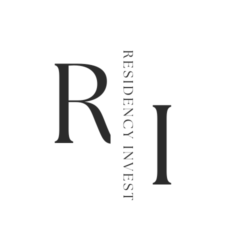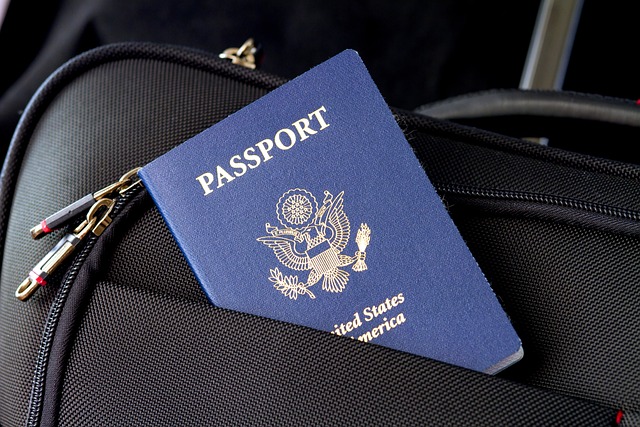The Biden administration has decided to defer the release of draft rules concerning wage adjustments for H-1B visa holders and green card holders. This move comes amidst ongoing layoffs in the country, particularly in the tech sector, where a significant number of H-1B workers are employed.
Furthermore, the final rules for increased fees on immigration-related applications, including H-1B visas, have also been postponed until March 2024, as reported by TOI. The agenda also includes measures to strengthen anti-fraud protocols in the H-1B cap registration system.
According to a partner at Fragomen, a global immigration law firm, the Department of Labor’s plan to implement the wage-hike rule has been significantly delayed and is now part of the long-term agenda. It is expected that a draft proposal will be released in June 2024. Once published, there will typically be a 30-60 day period for public comments, followed by several months for finalizing the proposal.
The bi-annual spring agenda outlines the immediate and long-term plans of various US government agencies, including the Department of Homeland Security, US Citizenship and Immigration Services, the Department of Labor, and the Department of State.
The proposed increases in H-1B visa wages and filing fees could have had negative implications for the American business community, which heavily relies on hiring H-1B workers. The USCIS’ fee schedule, published in January, faced criticism from the business community due to significant fee hikes for many employment-based immigration procedures. It remains uncertain whether the final rule, expected in March 2024, will modify the earlier proposed fee increases and to what extent.
Earlier this year, TOI reported on the proposed fee schedule, which included a rise in E-registration fees for H-1B applications from $10 to $215, and a 70% increase in subsequent fees for H-1B applications to $780. The most substantial increases were proposed for EB-5 investors, with the initial fee set to rise by 204% to $11,160.
On a positive note for American employers hiring immigration workers, USCIS plans to publish a final regulation in August. This regulation will grant them the authority to allow alternatives to in-person inspections of identity and employment authorization documents in the Form I-9 employment eligibility verification process.
This decision by the Biden administration to defer the wage adjustment rules and fee hikes has been met with mixed reactions from various stakeholders. Advocates for the tech industry and businesses relying on H-1B workers welcomed the postponement, citing concerns about the potential financial burden and impact on their operations.
However, critics argue that delaying the rules may lead to uncertainty and could exacerbate issues surrounding foreign worker wages and displacement of American workers in certain sectors. The H-1B visa program has long been a topic of debate, with proponents emphasizing its role in attracting highly skilled talent and driving innovation, while opponents raise concerns about potential abuses and job displacement for American workers.
The postponement of the wage adjustment rules until June 2024 provides an opportunity for stakeholders to engage in further discussions and evaluations. It gives employers and industry associations time to present their perspectives and potentially suggest alternative measures to address any wage-related concerns.
Similarly, the deferment of the fee hikes until March 2024 allows businesses to plan their budgets and hiring strategies with more certainty. The proposed fee increases had raised apprehensions about the financial burden on employers seeking to sponsor foreign workers, especially in industries where H-1B workers play a critical role.
In the meantime, the upcoming final regulation in August that grants employers the authority to use alternatives for in-person inspections in the employment eligibility verification process (Form I-9) is expected to streamline the hiring process and ease administrative burdens.
As the United States continues to navigate immigration policies and economic challenges, the fate of the H-1B visa program and other immigration-related matters remains subject to ongoing debate and revisions. Stakeholders, including businesses, immigration advocates, and policymakers, are closely watching for further developments in the government’s approach to immigration and visa programs.
It is important for individuals and employers in the US and abroad to stay informed about these updates and potential policy changes to make informed decisions regarding their immigration and hiring plans. Seeking professional advice from immigration attorneys and consulting firms can be crucial in understanding the implications of these regulations and ensuring compliance with the evolving immigration landscape in the United States.
As the discussions around immigration policies and visa programs continue, it is essential for prospective visa applicants and employers to remain vigilant and informed about any updates or changes in regulations. Navigating the complex immigration process can be daunting, but seeking guidance from experienced professionals can greatly assist individuals in understanding the intricacies and ensuring a smooth application process.
For those considering the EB-5 Investor Visa, similar to the H-1B visa program, careful planning and expert advice are crucial. The EB-5 program offers a unique path to obtaining U.S. permanent residency through investment, but it demands a thorough understanding of the investment requirements and job creation criteria.
H-1B visa – in India
In Delhi, where interest in U.S. immigration and investment opportunities is substantial, individuals seeking EB-5 visas should look for reputable immigration attorneys or consulting firms like Residency Invest specializing in the EB-5 program. These professionals can provide personalized guidance, assess investment projects for eligibility, and help prepare a strong application package.
Additionally, prospective EB-5 investors should thoroughly research potential investment projects to assess their viability and potential for job creation. This involves due diligence on the project’s track record, compliance with EB-5 regulations, and the reputation of the regional centre or developer.
As the Biden administration reviews and refines immigration policies, including the H-1B visa and EB-5 programs, staying informed about the latest developments is vital. Applicants must be prepared to adapt their strategies to meet the changing landscape of U.S. immigration.
While the recent postponements of certain rules have provided temporary relief to stakeholders, it’s important to note that the administration may implement adjustments in the future. Being proactive and seeking professional advice can help individuals and businesses navigate these changes successfully.
In conclusion, the U.S. immigration landscape is constantly evolving, and those interested in obtaining an EB-5 Investor Visa or any other immigration benefit must stay informed and seek expert guidance. By understanding the regulations, engaging with reputable professionals, and carefully planning their visa applications, individuals can increase their chances of success and realize their dreams of living, working, and investing in the United States.
H-1B Visa Changes Mean to People in India
The Biden administration’s decision to defer the wage hike for H-1B visa and green card holders will have significant implications for people in India wishing to apply for these visas.
1. **Financial Relief:** The wage hike, if implemented, would have increased the minimum salary requirements for H-1B visa holders, potentially making it more challenging for Indian professionals to qualify for these visas. The deferral provides a temporary respite for applicants, allowing them more time to plan and prepare for the potential changes in salary requirements.
2. **Job Opportunities:** The tech sector in the United States heavily relies on H-1B visa holders, and many of these skilled workers come from India. Deferring the wage hike means that companies can continue hiring talent from India at the current wage levels, potentially preserving job opportunities for Indian professionals seeking work in the U.S.
3. **Cost Considerations:** In addition to the wage hike deferral, the postponement of fee hikes on immigration-related applications, including H-1B visas, also benefits Indian applicants. This delay allows individuals and employers in India to budget and plan their visa application expenses more effectively.
4. **Uncertainty:** While the deferment provides some relief, it also introduces a degree of uncertainty for visa applicants in India. Prospective applicants may find it challenging to plan their career moves and long-term immigration strategies without knowing the exact timeline for potential wage adjustments and fee increases.
5. **Alternative Pathways:** With the potential changes in wage requirements, Indian professionals may explore alternative visa options to work and live in the U.S. The deferral period presents an opportunity for individuals to evaluate other immigration pathways, such as the EB-5 Investor Visa or other employment-based visa categories.
6. **Consultation with Experts:** Given the dynamic nature of U.S. immigration policies, seeking guidance from experienced immigration attorneys or consulting firms becomes even more critical for Indian applicants. Professionals can offer insights, track policy updates, and advise individuals on the best strategies for their specific circumstances.
7. **Reevaluating Investment Decisions:** For those considering the EB-5 Investor Visa, the deferral period allows Indian investors to reevaluate their investment decisions and ensure their chosen projects remain compliant with EB-5 requirements. It also offers more time to engage with reputable regional centers and developers.
In conclusion, the deferral of the wage hike and fee increases for H-1B visa and green card holders provides some relief to people in India wishing to apply for these visas. It allows applicants and employers more time to plan and prepare for potential changes in the visa landscape. However, it also introduces uncertainty, making it essential for individuals to stay informed and seek professional advice to navigate the evolving U.S. immigration policies successfully.









Leave A Comment